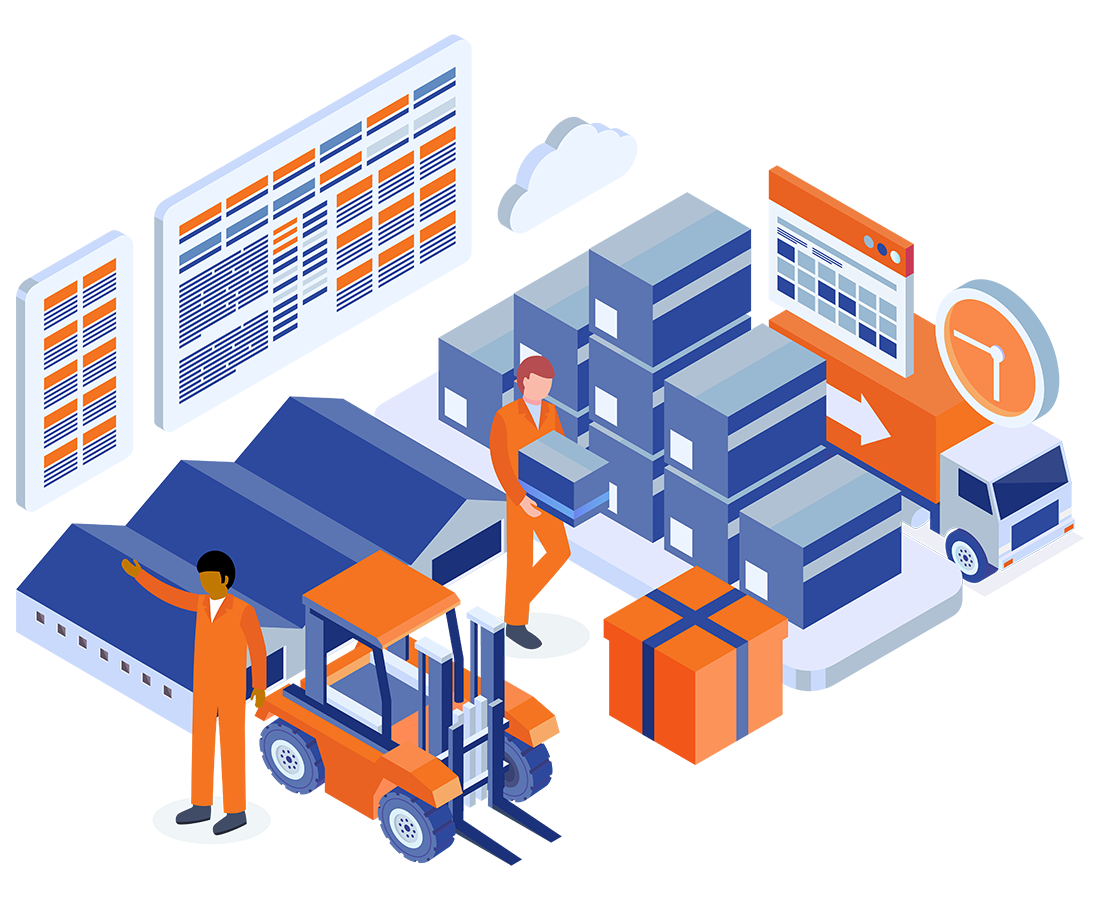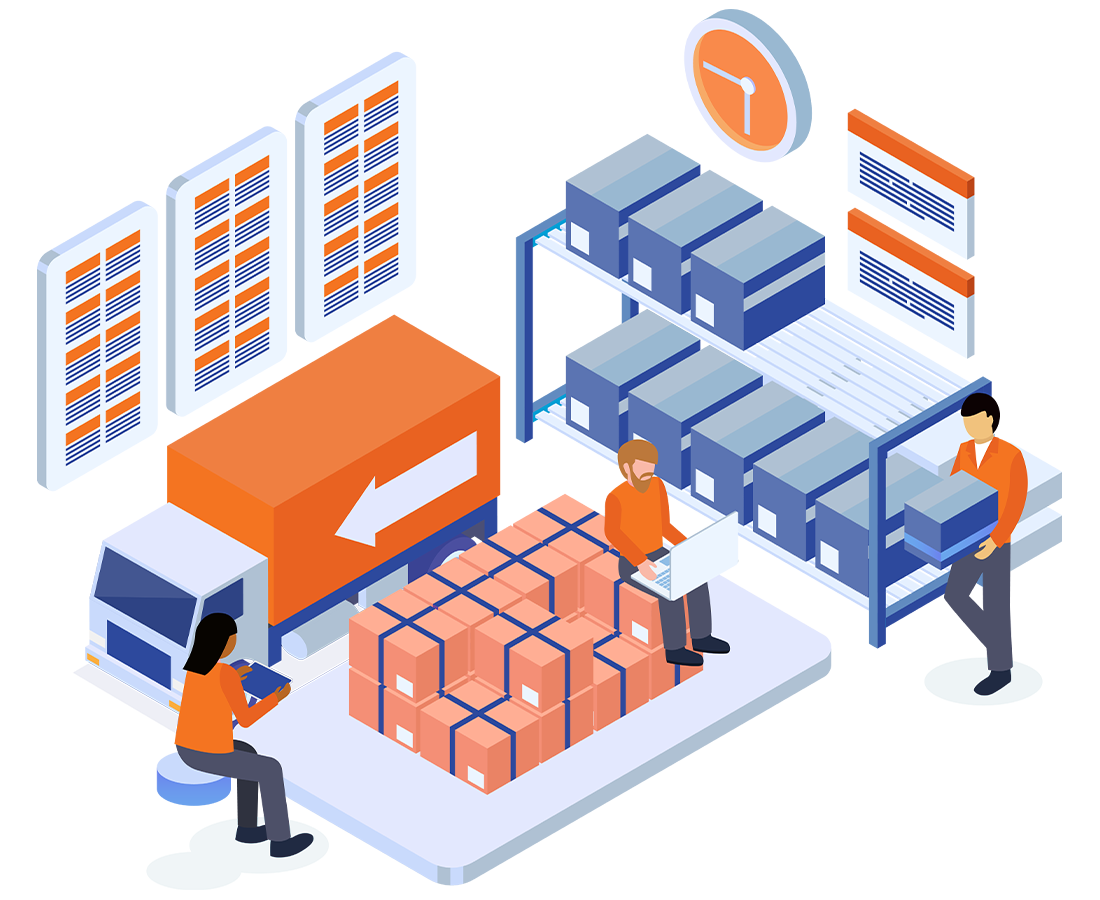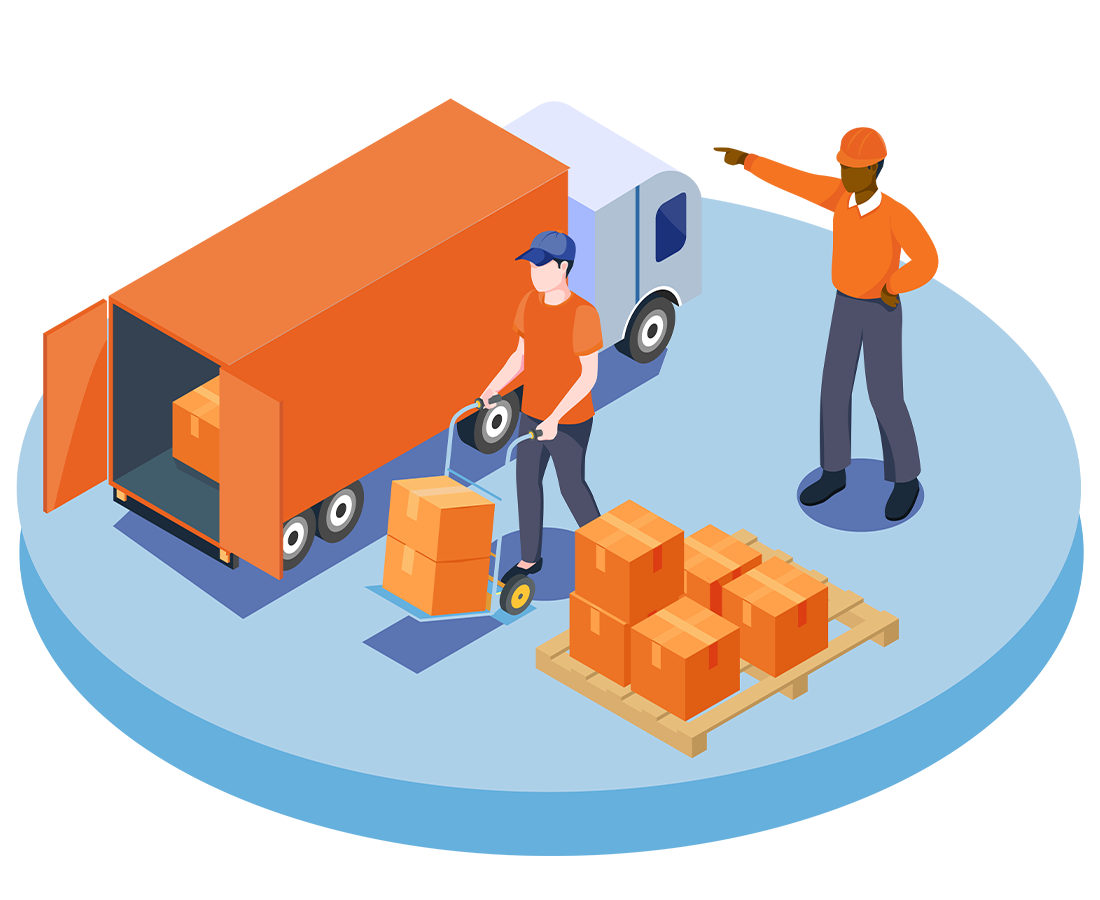RPA for Inventory & Supply Chain Management

When it comes to managing your inventory and supply chain, finding cost-effective ways to maximize efficiency is absolutely critical.
How can you go about improving efficiency without doing a complete overhaul of your existing processes and hiring additional staff? Three words: Robotic Process Automation (RPA).
RPA technology is extremely effective when it comes to inventory and supply chain management, as it can reduce the amount of time spent on tedious manual processes, increase efficiency, decrease operational risk, and reduce overall costs.
Let’s take a deeper look.
What is RPA?
RPA uses software to carry out business processes that are traditionally performed manually by human staff. Using RPA solutions, an organization can program “bots” to perform any repetitive, time consuming business tasks typically performed by your team.
When an organization implements RPA solutions, these processes can be fulfilled more rapidly than if they were performed manually. This gives your staff more time to focus on higher priority, higher value tasks, and helps reduce operational costs.
Benefits of RPA
![]()
From reduced costs to more streamlined processes, RPA offers numerous benefits when it comes to inventory and supply chain management. Here are some examples of the most significant benefits your organization may experience upon implementing automation solutions:

Eliminate Manual Administrative Tasks
With RPA, manual tasks such as inputting purchase orders, processing payments, data entry, and managing inventory and logistics can all be automated and taken care of by bots, giving your staff the time to focus on more important functions.

Identify & Automate Repetitive Processes
When RPA bots perform certain functions, they create detailed audit logs every time. These logs can be incredibly helpful, and give you access to important insights and data, so you can conduct your own analysis and find additional ways to improve efficiency and cut down on costs.

Boost Employee Satisfaction
When tasked with tedious, repetitive, time-consuming tasks, staff will often feel tired, unproductive, and unmotivated.
With RPA bots on hand to tackle these types of tasks, your staff will have the time to take care of more valuable, rewarding functions, and will feel more productive overall.

Risk Reduction
RPA bots are completely immune to things like fatigue, distraction, and lack of knowledge that often lead to errors from human staff. With RPA implemented to assist in supply chain management, you significantly reduce the risk of costly errors from occurring.
Manual Processes Automated By RPA
Order and Payment Processing
![]()
Without RPA, processing orders and payments requires a series of manual processes, including invoice creation and pre-compliance checks. Not only does this slow down the entire process, but it leads to a lack of visibility and increases the risk of discrepancies and human errors.
With RPA, the entire process from start to finish is taken care of by RPA bots, so you can focus on growing the volume of orders and payments to be processed.
Sales Order Creation
![]()
Manually handling purchase orders and creating sales orders is incredibly time-consuming and can lead to errors.
RPA resolves this issue by processing forms and contracts in various formats and verifying the specified requirements. RPA can also help improve your team’s efficiency during the sales order process by creating an automated approval workflow.


Supply and Demand Forecasting
![]()
Traditionally, supply and demand forecasting has not been an easy task. When performed manually, this process requires staff to obtain and organize data into presentable formats, analyze the data, and then communicate with the appropriate staff members.
RPA bots can be deployed to examine various functions such as warehouse, inventory, and procurement, and gather data in just minutes, so your team can more effectively manage supply and demand planning.
Inventory and Warehouse Management
![]()
Inventory levels must be carefully monitored by manufacturers to ensure there is enough stock to meet demand.
Unfortunately, though, it’s incredibly common for errors to occur when managing warehouses, particularly when keeping track of inventory and receiving, packing, and shipping orders.
Inventory-related tasks such as inventory allocation, replenishing inventory, shipping out orders, and even calculating discounts can all be easily handled by RPA bots with improved accuracy.
Data Entry
![]()
Lack of integration is a common concern for many retail businesses that utilize data.
RPA is an incredibly effective tool when it comes to data entry, and can be deployed to gather, enter, and analyze data across several integrated systems, so you can gain crucial insights into your business and the efficiency of your processes.
Predictive Maintenance
![]()
Keeping tabs on the state of your equipment is incredibly important to ensure maximum efficiency with your supply chain.
RPA can help monitor assets in real-time and predict and facilitate any required maintenance.
Here’s how it works:
RPA bots retrieve sensor data in real-time and send it off to the cloud for analysis. Depending on the outcome, RPA bots can schedule maintenance and notify all relevant parties.


Logistics Management
![]()
When it comes to the delivery stage of the supply chain, RPA can dramatically improve efficiencies and eliminate errors by monitoring orders and updating the order handover details across all systems.
After-Sales Services
![]()
After a sale is made, it’s important to nurture client relationships to ensure they will continue giving you their business.
RPA can help improve your customer experience in a variety of ways.
Here are a few examples:
- A customer places a service request and a chatbot can interact with the customer and perform certain functions depending on the request.
- RPA bots can send notifications to customers in the event of delays or other issues, enhancing the overall customer experience.
- RPA bots can track orders in real-time and automatically notify the customer when an order has shipped and is out for delivery.
Initiating Purchase Orders
![]()
RPA bots can be programmed to monitor inventory levels and create a purchase order when supply levels start to dip. This means you never run the risk of inventory being depleted before you’re able to receive another shipment.
Order Management
![]()
RPA can streamline most aspects of the order management process,
including load matching with transport availability.
RPA can also compile data from across multiple systems to aid in order management, such as organizational management modules, Excel sheets, and web portals.


Supplier Relations
![]()
RPA can be implemented to help automate supplier relationships in order to build a stronger, more flexible supply chain.
For instance, RPA bots can be deployed to prepare requests for proposals (RFP) or requests for quotes (RFQ), communicate with suppliers, and even analyze documents.
Vendor Selection
![]()
RPA bots can organize data from vendor documents and can even help streamline the vendor selection process by running credit and compliance checks.
Partner On-Boarding
![]()
RPA can be used to process forms and contracts in different formats and verify the specified requirements in a fraction of time. These bots can even enhance the team’s efficiency by creating an automated approval workflow.
Pitfalls of Not Implementing RPA For Inventory & Supply Chain Management
As with any process, tasks performed manually by sales teams take away from time that could be spent nurturing leads and closing deals. As a result, staff feel less productive and unmotivated.
Despite the numerous benefits that RPA offers to all types of businesses, many organizations continue operating their inventory and supply chain processes manually, leading to numerous challenges.
Here are a few examples:
Inaccuracies
Inaccurate data or incorrect inventory calculations can lead to disaster. Unfortunately, with manual processes in place, such mistakes are inevitable. RPA bots are incapable of making human errors, and can help you ensure accuracy within your supply chain.
Time is Wasted
Humans can only work so quickly, and time-consuming manual processes only slow down your supply chain. RPA bots can automate the simplest to the most complex tasks and perform them much more rapidly, so you can spend more time focusing on bigger priorities.
Lack of Productivity
Performing the same repetitive, mundane tasks day after day often leads to disengaged staff and lack of job satisfaction.
By implementing RPA technology, your team can forget about these manual processes weighing them down and instead, focus on more complex tasks that will leave them feeling more engaged and productive.


As with any process, tasks performed manually by sales teams take away from time that could be spent nurturing leads and closing deals. As a result, staff feel less productive and unmotivated.
Despite the numerous benefits that RPA offers to all types of businesses, many organizations continue operating their inventory and supply chain processes manually, leading to numerous challenges.
Here are a few examples:
Inaccuracies
Inaccurate data or incorrect inventory calculations can lead to disaster. Unfortunately, with manual processes in place, such mistakes are inevitable. RPA bots are incapable of making human errors, and can help you ensure accuracy within your supply chain.
Time is Wasted
Humans can only work so quickly, and time-consuming manual processes only slow down your supply chain. RPA bots can automate the simplest to the most complex tasks and perform them much more rapidly, so you can spend more time focusing on bigger priorities.
Lack of Productivity
Performing the same repetitive, mundane tasks day after day often leads to disengaged staff and lack of job satisfaction.
By implementing RPA technology, your team can forget about these manual processes weighing them down and instead, focus on more complex tasks that will leave them feeling more engaged and productive.
Think RPA is Right For You?
Whether you are a beginner to the world of Robotic Process Automation and require some guidance, or you are already familiar with RPA solutions, our goal at Thrive Automation is to ensure your team is fully supported and empowered to implement RPA in a way that helps your business reach its full potential.
We offer the following options, depending on your knowledge and experience level with RPA:
- Automation Readiness Audit (ARA)
- Automation Roadmap
- Automation Pilot
- Automation Centre of Excellence
- Thrive Care
